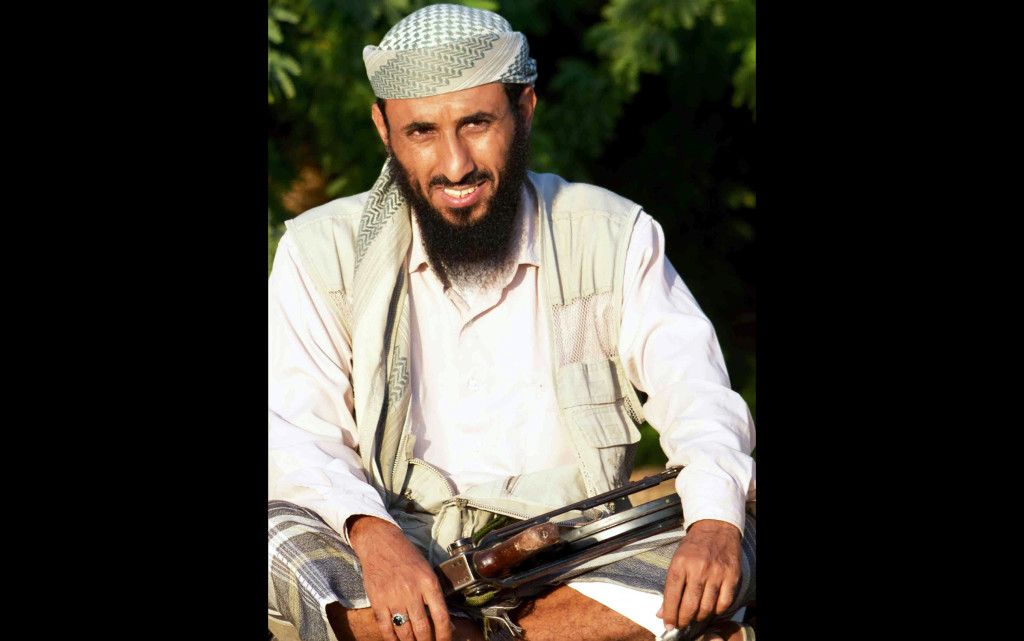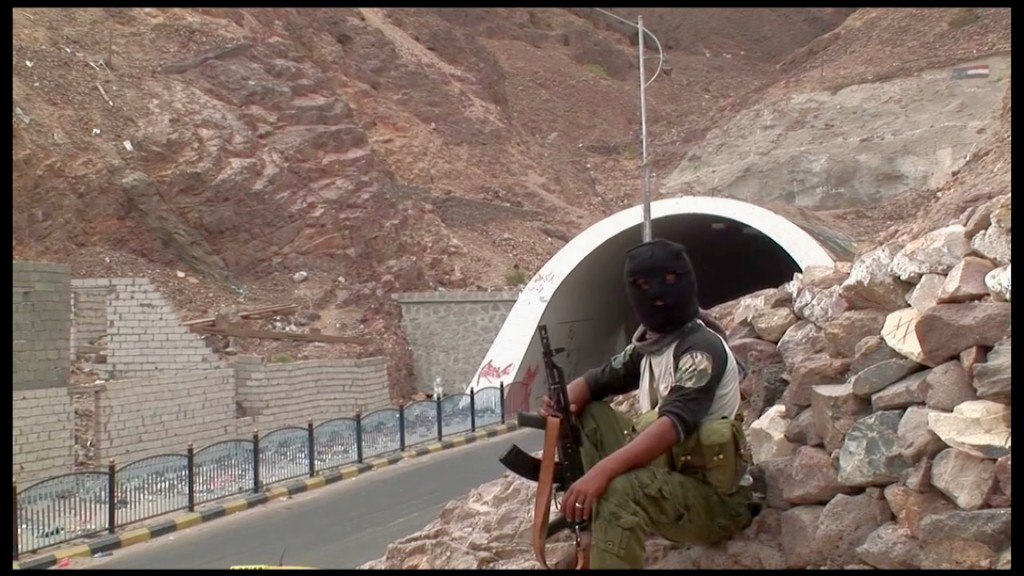Has the U.S. Killed the Most Important Al Qaeda Member Since Bin Laden?

June 16, 2015
Share
Al Qaeda’s dangerous Yemen affiliate, Al Qaeda in the Arabian Peninsula, confirmed in a video statement on Tuesday that a U.S. missile strike killed its leader, Nasser al-Wuhayshi.
Wuhayshi, who also effectively served as the second-in-command for Al Qaeda central behind Ayman al-Zawahiri, was an early member of the organization and Osama bin Laden’s personal secretary in Afghanistan before the 9/11 attacks. His death comes at a time when the Islamic State of Iraq and Syria is eclipsing Al Qaeda globally in territory and notoriety, while simultaneously luring fighters away from the group.
“This is a significant loss,” Ali Soufan, a former FBI special agent who investigated the USS Cole bombing off the coast of Yemen in 2000, told FRONTLINE. “I might probably say that it’s the most significant hit against Al Qaeda since the death of bin Laden.”
After the 9/11 attacks, Wuhayshi fled to Iran, and then ended up in prison in Yemen. In 2006, he escaped with 23 other militants, and went on to cofound what would become Al Qaeda in the Arabian Peninsula.
“Because of his relationship with Osama bin Laden, because of who he was in the organization, [Wuhayshi] possessed a level of credibility that’s very rare in the organization,” Soufan, author of “The Black Banners: The Inside Story of 9/11 and the War Against Al Qaeda,” explained. “He was able to build AQAP and make it the most important affiliate of Al Qaeda.”
Also Read: Al Qaeda is Exploiting the Conflict in Yemen, says Pentagon Chief
American officials have long considered Al Qaeda’s Yemen affiliate to be the organization’s most dangerous branch. Al Qaeda operatives in Yemen were linked to the 2000 USS Cole bombing, and AQAP was later tied to several foiled plots targeting the U.S. homeland, including the so-called underwear bomber and a plot to use explosive-laden printer cartridges to blow up planes. Most recently, AQAP claimed credit for the deadly shootings at a satirical newspaper in France — Charlie Hebdo — that killed 12 people, including the editor and two police officers.
“AQAP and Wuhayshi continued not only to carry on bin Laden’s jihad in targeting the West and targeting the U.S.,” Soufan said, “but he also became the main conduit between all the other affiliates and Al Qaeda central.”
As Al Qaeda’s second-in-command behind al-Zawahiri, Wuhayshi helped to coordinate military and media activities, and communicated with both Al Qaeda affiliates and allies such as the Taliban in Afghanistan and Pakistan, according to The Long War Journal, which tracks drone strikes in Pakistan and Yemen.
“His death now is very significant,” Soufan said. “It has an impact way beyond AQAP and beyond Yemen. It has an impact on the way Zawahiri will be able to project his leadership, especially at a time that the organization is suffering from some command-and-control problems.”
AQAP is also enmeshed in the ongoing conflict in Yemen, where it has allied with Sunni tribes against the nation’s Houthi rebel movement and forces loyal to the nation’s president, Abdu Rabbu Mansour Hadi, and his influential predecessor, Ali Abdullah Saleh. It also has to contend with the introduction of a rival to the region: militants claiming to represent a new Yemen affiliate of the self-proclaimed Islamic State, known also as ISIS or ISIL.
Also Read: Who’s Who in the Fight for Yemen
In its video statement confirming Wuhayshi’s death, AQAP announced that Qassim al-Raimi, currently the group’s military commander, would take over for him.
“Will ISIS try to poach some of AQAP’s leaders and organization? Will Raimi have the charisma, the credibility and trust that [Wuhayshi] had before in order to keep AQAP at the same level organizationally under Al Qaeda as it used to be? That’s yet to be seen, but definitely, I wouldn’t count AQAP out yet,” Soufan said.
He added that it was important to keep paying attention to AQAP, because it has a lot of operatives who can act internationally, and would probably “want to do something big,” not just to in retaliation for Wuhayshi’s death but “to prove that they’re still capable.”
Related Film: Al Qaeda in Yemen:
FRONTLINE investigates how Al Qaeda and affiliated militants seized territory in southern Yemen and won some popular support.

Related Documentaries
Latest Documentaries
Related Stories
Related Stories
Explore
Policies
Teacher Center
Funding for FRONTLINE is provided through the support of PBS viewers and by the Corporation for Public Broadcasting, with major support from Ford Foundation. Additional funding is provided the Abrams Foundation, Park Foundation, John D. and Catherine T. MacArthur Foundation, Heising-Simons Foundation, and the FRONTLINE Trust, with major support from Jon and Jo Ann Hagler on behalf of the Jon L. Hagler Foundation, and additional support from Koo and Patricia Yuen. FRONTLINE is a registered trademark of WGBH Educational Foundation. Web Site Copyright ©1995-2025 WGBH Educational Foundation. PBS is a 501(c)(3) not-for-profit organization.





















